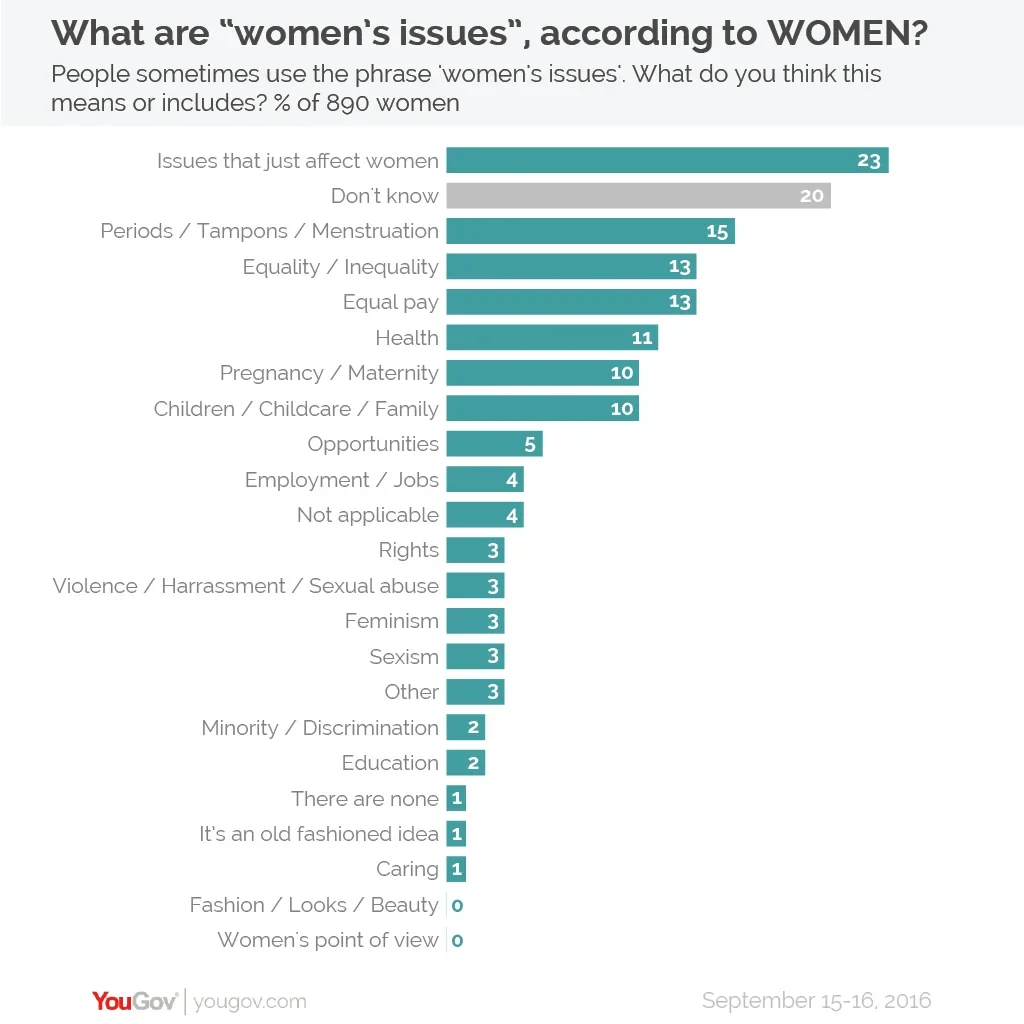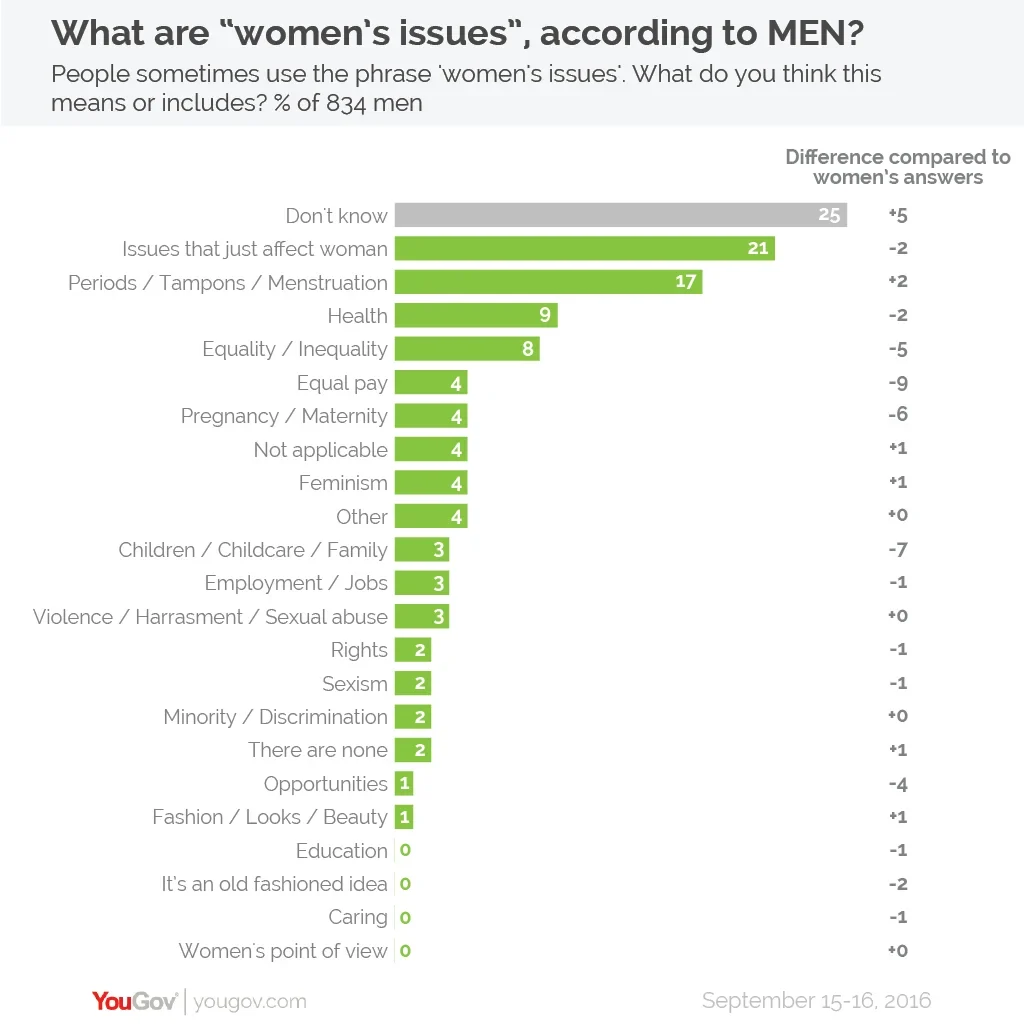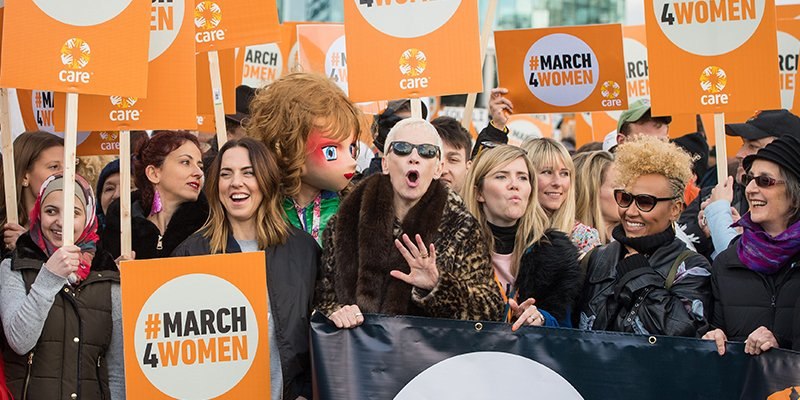With people across the world marking International Women’s Day 2017, YouGov finds that among Britons there is no unanimous understanding about what women’s issues actually are
Today is International Women’s Day (IWD). IWD has been observed for nearly 100 years and celebrates the social, economic, cultural and political achievements of women, as well as being a call to action for accelerating gender parity.
But what do women in Britain currently consider women’s issues to be?
A few months ago, we asked both men and women in Britain an open question asking what they thought the phrase “women’s issues” might mean or include. The results highlight that, as far as the public is concerned, there is no clear, unifying idea about what women’s issues actually are.
Women’s issues, according to women
The most common answer was also the vaguest – that women’s issues are simply ‘issues that only affect women’, which was given by just under a quarter (23%). Additionally, as many as one in five women (20%) said that they don’t know what the phrase means.
When it comes to more specific answers, the most commonly given was that “women’s issues” refers to periods, tampons and menstruation (15%). A further 13% said “women’s issues” refers to equality or inequality, whilst 13% also specifically referenced equal pay.

Other relatively common answers women gave included health (11%), pregnancy/maternity (10%) and children/childcare/family (also 10%).
Age seemed to have a small influence on which issues women were most likely to choose. Those over the age of 40 were more likely to cite children and family (12%) and health (13%) as women’s issues than younger women (5% and 7% respectively). Those under 40 were slightly more likely to bring up equal pay as an issue (16% versus 12%).
Women’s issues, according to men
The survey also asked men what they thought the phrase “women’s issues” meant or included. The most commonly given answers by women were also the most commonly given by men: issues that just affect a woman (21% of men), periods/tampons/menstruation (17% of men) as well as not knowing what the phrase meant (25% of men).

There were noticeable differences between the genders though. Men were particularly less likely to reference equal pay in their answers (4% of men compared to 13% of women), as well as children, childcare and family (3% of men vs 10% of women) and pregnancy and maternity (4% of men vs 10% of women).
There were few age differences among men. The only exception to this was for periods/tampons/menstruation, which men under 40 were more likely to reference than older men (23% vs 14%).
Photo: PA images










